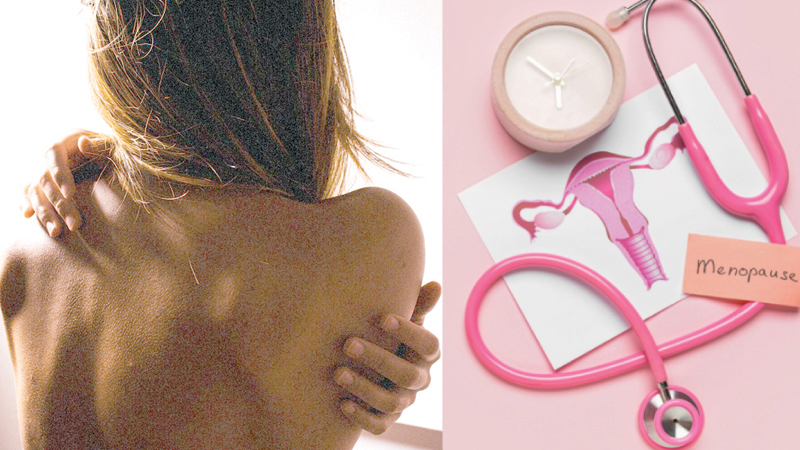2025 marks a significant milestone for the Menopause Society of Sri Lanka as it celebrates its silver jubilee. Since its inception in 2000 under the founding presidency of Dr. M. D. P. Gooneratne, Consultant Obstetrician and Gynaecologist, the society has led the way in raising awareness, providing education, policy planning and paying an advocacy role on menopause and women’s midlife health issues, locally and globally.
To commemorate this 25-year journey, a two-day international conference will be held on July 12 and 13.2025, welcoming both professionals and the public. The event aims to shed light on the latest developments in the understanding and management of menopause, with an emphasis on its physical and psychological impacts.
The menopausal transition: A complex life stage
Menopause is defined as the cessation of menstruation for twelve consecutive months due to the natural decline in ovarian hormone production. It typically occurs between ages 45 to 55, though it can happen earlier in some cases, especially due to medical interventions such as surgical removal of the ovaries or chemotherapy —a condition known as iatrogenic menopause.
The period leading up to menopause, known as perimenopause, is often marked by fluctuating levels of oestradiol, progesterone, and testosterone. These hormonal changes can result in a broad range of symptoms affecting both body and mind.
Psychological and neurobiological impact of hormonal changes
Hormonal shifts in the perimenopausal period can have profound psychological effects, particularly on women with pre-existing mental health conditions. Oestradiol, in particular, influences serotonin pathways, and its reduction may lead to mood instability and an increased risk of depression
Common psychological symptoms include:
Anxiety and irritability
Depressed mood and emotional
lability
Poor sleep and fatigue
Cognitive disturbances, including memory problems and “brain fog”
Feelings of low self-worth and lack of motivation
These symptoms can sometimes mimic psychiatric conditions, leading to misdiagnosis or delayed treatment. It is vital to distinguish perimenopausal symptoms from relapses of chronic mental illness.Effects on Pre-Existing Mental Health Conditions
The menopausal transition may exacerbate several psychiatric conditions:
Depression
A 2–5 fold increased risk of depressive episodes during perimenopause.
Up to 6% of women report suicidal ideation during this period.
Antidepressants may be less effective or require dosage adjustments.
Schizophrenia
Declining oestradiol affects both neurotransmission and hepatic metabolism of antipsychotics (e.g., via CYP1A2, CYP3A4), reducing drug efficacy.
This may lead to treatment resistance and worsening psychotic symptoms.
Bipolar Disorder
Increased mood cycling has been observed, with a tendency towards depressive symptoms and possible hypomanic features such as overexpenditure and overactivity.
Sleep disruption, common in perimenopause, may act as a trigger.
Anxiety Disorders
Anxiety is prevalent and often correlates with vasomotor symptoms such as hot flushes. It may appear for the first time or worsen in those with existing anxiety disorders.
Neurodiversity and menopause
There is emerging evidence suggesting menopause poses unique challenges for neurodiverse women, including those with:Autism Spectrum Disorder (ASD): May experience increased sensory sensitivities, emotional dysregulation, and difficulty navigating social demands.
Attention-Deficit/Hyperactivity Disorder (ADHD): Executive dysfunction and memory issues during menopause can mimic or worsen ADHD symptoms. There is ongoing debate about whether symptoms are unmasked or newly emergent during this period.
Stimulant medications may offer symptom relief in some cases, but further research is needed to clarify best practices for management.
The Role of Early Life Trauma
Early childhood adversity has long-term consequences on mental health and reproductive aging. Women with a history of trauma may experience: Earlier onset of menarchy and earlier onset of menopause, Increased severity of vasomotor symptoms and Heightened vulnerability to psychological distress
Oestrogen may act as a neuroprotective modulator in these individuals, potentially mitigating some of the stress-related outcomes.
Physical health risks in Post-Menopause
The decline in protective hormones in post-menopause increases the risk for:
Osteoporosis
Cerebrovascular disease
Type 2 Diabetes Mellitus
Cognitive decline
These risks underline the importance of early intervention and lifestyle management during the transition.
Hormone Replacement Therapy: A Reassessment
For years, concerns from the Women’s Health Initiative trials limited the use of Hormone Replacement Therapy (HRT). However, subsequent re-evaluation of the data supports its safe and effective use when appropriately prescribed.
Benefits of HRT include
Relief from vasomotor and mood symptoms
Prevention of osteoporosis and fractures
Possible reduction in risk of colon cancer, strokes, type 2 diabetes, and cognitive decline
Potential adjunctive role with psychotropic medications
Addressing Diagnostic Overshadowing
In clinical practice, menopausal symptoms in women with mental health histories may be mistakenly attributed to psychiatric relapse—a phenomenon known as diagnostic overshadowing. This misattribution can delay appropriate treatment and support.
Proactive strategies should include
Open discussions about menopause during consultations
Lifestyle advice and psychosocial support
Timely referral to gynaecological services when indicated
As the Menopause Society of Sri Lanka celebrates 25 years of dedicated service, the upcoming conference in July 2025 presents an ideal opportunity to reflect on progress and continue educating both professionals and the public.
Improving awareness of the mental, physical, and emotional dimensions of menopause—and integrating care across specialties—will remain key to empowering women through this significant life transition.
(The writer is Senior Consultant Psychiatrist, Colombo South Teaching Hospital/ Vice President of Menopause Society of Sri Lanka)






